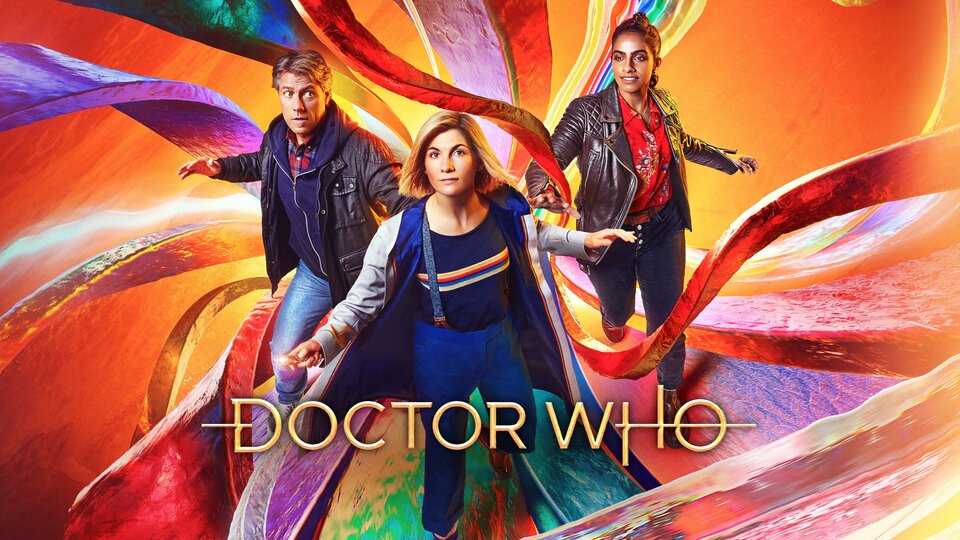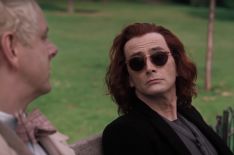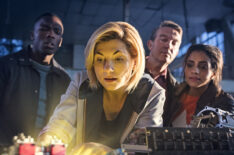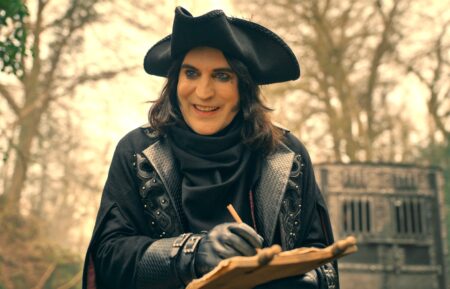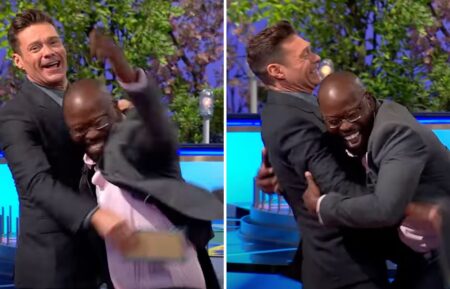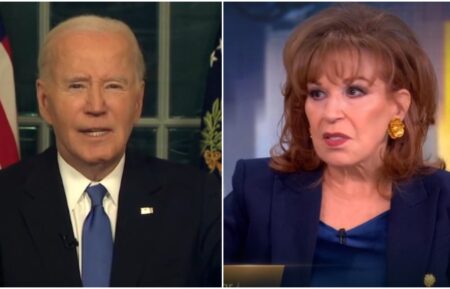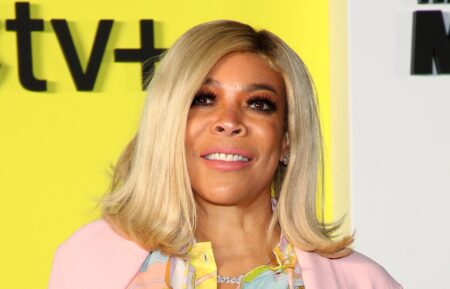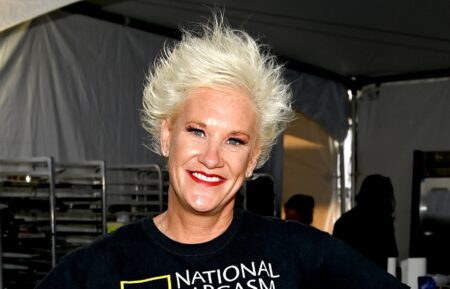‘Doctor Who’ Writer Vinay Patel on Bringing the Doctor Into the Partition of India & Graham’s Future
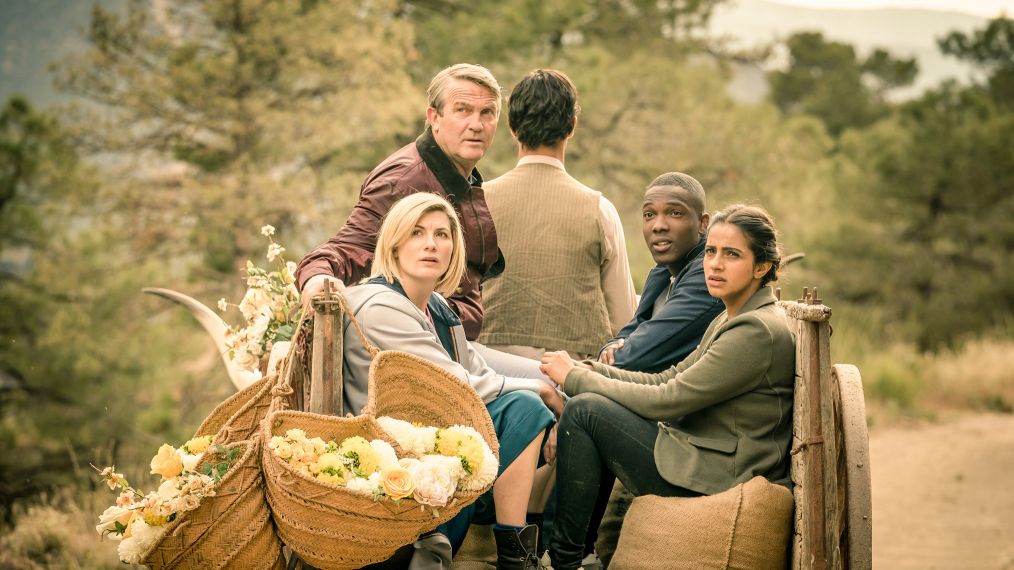
Q&A
[Warning: The below contains MAJOR spoilers for the Season 11 episode of Doctor Who, “Demons of the Punjab.”]
The time-traveling saga of Doctor Who continued tonight with a beautifully-shot and well-written sixth episode — titled “Demons of the Punjab” — that explored the Partition of India (the historic event that created the division of British India, resulting in the independence of both India and Pakistan separately).
The Doctor (Jodie Whittaker) and her new pals Yasmin (Mandip Gill), Graham (
TV Insider spoke with episode writer Vinay Patel about bringing this period of history to life for the small screen.
I have to admit, I knew almost nothing about this facet of history going into this episode. Was educating people a bit more on it a big part of why you wanted to do this story?
Vinay Patel: Yeah, definitely. It’s still one of those things that people just don’t know anything about, which to me, I always knew a little bit about it, but it felt a little strange that that was the case. So, when I got the chance to pitch an idea for Doctor Who, I was like, ‘That is a historical event I would love to put in front of as many million people as you can on a Sunday evening.’
Were you a fan of Who before?
I didn’t watch the old version, but the new incarnation was something that came through from an old ex-girlfriend [laughs]. Doctor Who had always been that thing that had slightly evaded me. I think because I had it in my head that it was having this reputation of being a bit wacky. One of my favorite shows to watch as a kid was Quantum Leap. The idea that you could look at different periods of history as a way of both educating and informing and also being entertaining is exactly what my favorite episodes of Doctor Who do. Getting a chance to do that was amazing.
Was this the first story idea that you pitched?
It was. In my head, I was like, ‘Okay, if I get one shot to pitch to Doctor Who, what do I really want to do with it?’ And it was always this. It was also around the 70th anniversary of the Partition at the time, so it felt really good time to raise awareness for that particular period of history. I had been reading into it for a couple of years anyway, and it was just so much more complicated and in-depth and so much more tragic than I had ever imagined.
Were you worried about making this traumatic event in history too much for a show that people watch with their families?
Yeah, that was one of those things that sits with you and every line that you write and every decision you make creatively. Basically, how do you not soft-sell what this period of history was, while also making it palatable and available for a family audience? The episode [went out] on Armistice Day here. I remember in school growing up and having an understanding about the horrors of warfare, so I think actually [children] have an idea of what it means to have this horrendous conflict in the world – and the grand idea of it isn’t something that seems so out of bounds for a family show because it’s something that people sit with their entire lives.
Trying to zero in on what is the emotional core of that though was a challenge. You don’t have to show the violence – even though the Partition was absolutely off the scale. Obviously, that can’t be the way that we engage with that story, but the real deep thing in the Partition is how deeply that is still a wound in what India and Pakistan in particular have between them. So it’s about factoring a family and factoring a community and that is something I feel like [people and their] kids can understand–and maybe they’ll wonder, you know, what would happen if their family was on the other side of that line? That felt like a very simple and a very true way of exploring it. And that is the lens that we decided to go with.
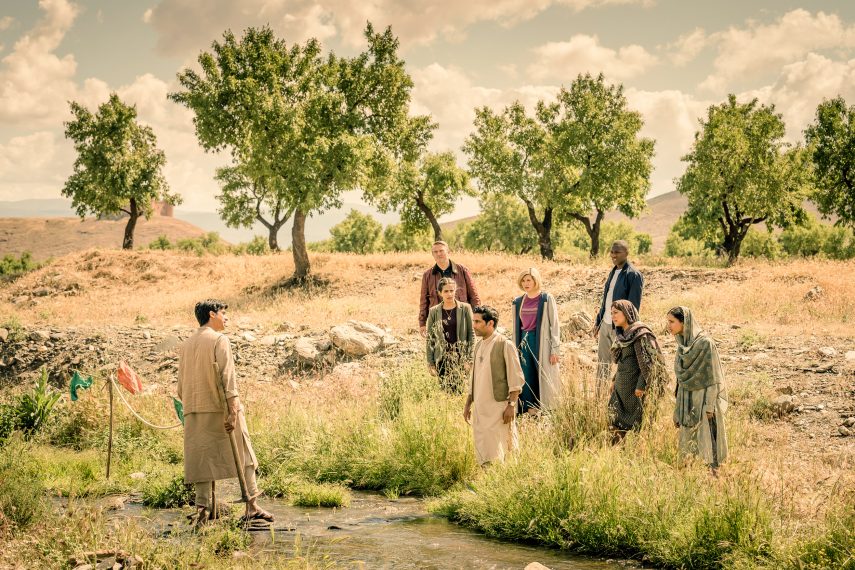
Photo: BBC America
What was your biggest hurdle, writing-wise?
A couple of things, really. On a very technical level, it’s about how do you keep the gang coming into that situation active in a story you know where they can’t be the ones to save the day. On that level, it’s a tricky writing thing. On a larger, more global, level this is going to be a lot of people’s first encounter with this period of history. How do you tell as much of it as you can without feeling that you’re too much being hit in the head with history? There’s a whole complex, political backdrop to it the hope is that people will go out and search it after on their own time.
When you were doing your own research for this episode, was there anything new you learned that shocked you?
One of the most fascinating things about the Partition is Pakistan celebrated their independence on the 14th of August and India celebrates independence on the 15th of August. And that is the beginnings of those two countries as we know them today. But for two days, they didn’t have borders. So, the borders went out on the 17th, which is the day that the episode is set. You have this thing where people felt very strongly connected to these two countries, but really no one, apart from a few higher-ups, knew where those two countries were. There’s something quite profound in that.
This whole episode is also a huge part of Yas’ character development too. Was there any pressure there?
I didn’t feel like there was a huge amount of pressure. As long as you stay truthful to the inquisitive nature of that character. There were things I wanted to get in from my own background, but also there’s the question of, ‘What do I think I can bring into this story that feels truthful?’ I was raised by my grandparents basically, and my grandmother was a huge part of my life. That connection to Britain, because you had this generation of people who came across three continents before they were 30 years old.
Whereas you have someone like Yas, who has grown up in one place her entire life, and I think that disconnect in the story is absolutely fascinating, also in this case, absolutely traumatic. For me, there was the thing about that, and I also wanted to follow through on the fact that she’s a police officer and she has this sense of justice and the world being right. To be drawn into this time where it’s hard to know what’s the right thing in the moment, I think that felt like a nice place to challenge her with.
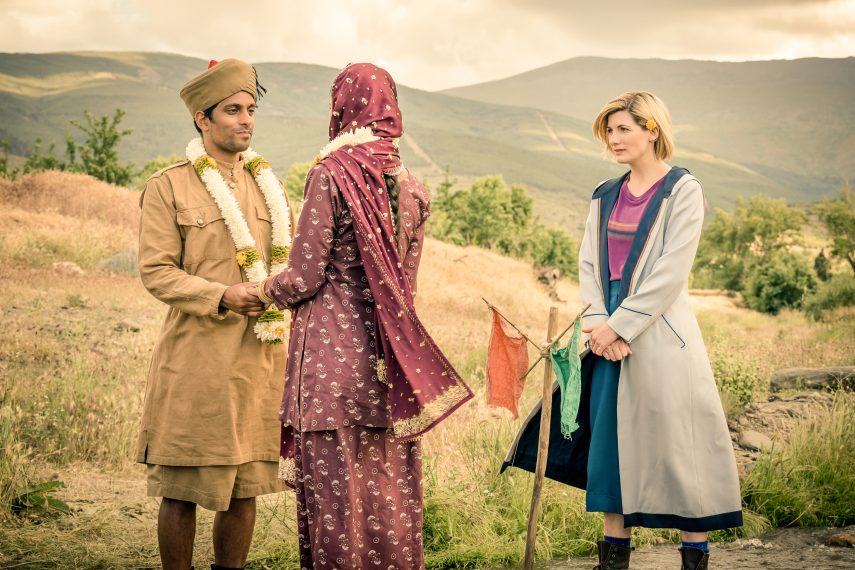
Photo: BBC America
Having the Doctor officiating the wedding — that was such an interesting, fun choice. How did that come about?
Essentially, the person who would have normally done it, wasn’t there. In my head, it was this idea of this wedding, which is a hodgepodge of a lot of traditions and a lot of ideas — there were these two countries being formed and also this new identity for this couple. They can make that whatever they want it to be. It wasn’t like the Doctor going, “Yeah, I’ll do it.” It was about this character saying this is how they wanted their wedding to be and not being dictated by, you know, what people in offices far away say it should look like, but just trying to drive your own future.
Should we be worried for Graham’s future?
I wouldn’t possibly want to tell you that. [Laughs] I think Graham’s probably my favorite character. I think I just really like Bradley Walsh. He’s absolutely delightful. And I love the idea of that character traveling through time — a guy who has lived a bit of a life already.
What was the biggest, most important thing you wanted to get across when creating this episode?
The biggest thing to me was to make people think about what other parts of history they don’t know about. Looking at the stories of the past change the way you look at different situations in the future and so my hope is that this will be the start of people looking at things not just like partitions, but the history of their countries and their families.
Doctor Who, Sundays, 8/7c, BBC America

